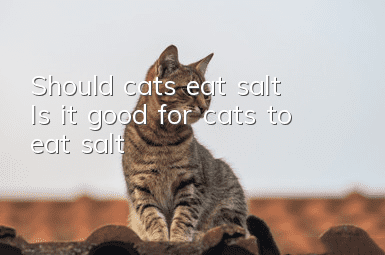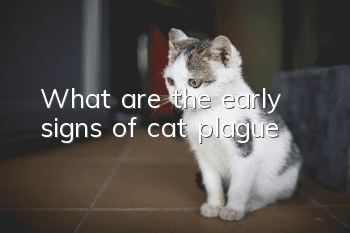Should cats eat salt? Is it good for cats to eat salt?

1. Salt in the popular context refers to table salt, which is sodium chloride. It exists in the body of animals as chloride ions and sodium ions. We all need these two ions! If there are suddenly no these two ions in the body, humans will Even the cat could no longer survive in an instant.
It’s just that humans are one of the few (perhaps the only?) terrestrial creatures that eat high amounts of salt. For cats, they can absorb enough salt by eating their prey’s fur, drinking blood, eating meat and gnawing bones! (Blood is salty, as are sweat and tears, because There is salt in the body~)
2. Why do some Weibo posts say that you need to eat more salt and that there is salt in prescription grains?
Fact 1: Some prescription cat food for urinary system diseases does contain added salt. The principle is that eating too much salt will make the cat thirsty and force the cat to drink water. But there are not many, they are within the safe range. You will know after you try it. No one is used to the taste being so salty, and it is definitely not as salty as the Malatang or KFC that everyone eats.
Fact 2: The main raw material of urinary system stones is not commonly known as table salt, but other minerals such as phosphorus, magnesium, and calcium (in the chemical definition, if these substances are purified from food, they are also salts, but that is not what we call them. salt for cooking)
Fact 3: Too much salt in the food (note that it is too high!) will put a great burden on the cardiovascular system. Cats with heart-related diseases are strictly prohibited from eating high-salt diets! Cats with urinary system problems are more than safe. A high level of salt will also cause a burden on the body, because too much salt will increase the concentration of sodium ions and cause the body to lose potassium ions, and potassium ions are also crucial to health! Some cats with chronic renal failure will have hypokalemia In this case, if you consume too much salt and further discharge potassium ions, it will directly threaten the work of the heart. Parents who have treated cats with chronic renal failure may know that sometimes veterinarians will prescribe potassium supplements~~
3. Summary statement:
1. Table salt is not a scourge! Nor is it a sugar-free panacea for treating kidney failure! Just eat the amount your body needs.
Cats that eat cat food, canned cats, and raw meat and bones will not be short of them if they eat a normal diet.
When eating homemade cats, parents should pay attention to the balance of ingredients, including internal organs and muscles. Do not wash and soak the meat excessively before cooking. Try to ensure that the original soup produced during the cooking process is eaten by the cat (such as steaming, or Like 4mm in the bar, one pot of soup and water is given to the cat).
If you are boiling a small amount of ingredients in a large pot of water, you can consider adding a little salt and taurine.
2. The golden rule for preventing lower urinary system diseases is always: drinking enough water.
The minimum dosage for cats is 30ml per kilogram of body weight per day., in other words, a 5kg cat needs to drink at least as much water as half a can of Coke a day. I personally think 40ml is safer, especially when the weather is hot.
3. Don’t hope that adding salt to cat food will prevent urinary system diseases! And don’t think that all human foods can be safely given to cats! Many human foods not only contain far more salt than cats need, And there may be other ingredients (for example, chili and garlic are commonly used in Chinese food, onions are more common in Western food, grapes are included in some fruit salads and dry goods, etc.), so don’t take it lightly because of someone else’s Weibo.
- What are the basic cat trainings? Effective cat training!
- What will happen if the cat is not neutered?
- Can a two-year-old cat still be trained? Cat skill training!
- Why is the cat getting thinner and thinner?
- Why do cats drink water frequently in winter?
- Are smoky gray pastoral cats common?
- How often do cats need to be bathed?
- How long does it take for a cat to eliminate the bugs after taking deworming medicine?
- Symptoms before death in cats with anuria
- What are the liver-calming and eyesight-improving medicines suitable for cats? A must-read for pet owners!



